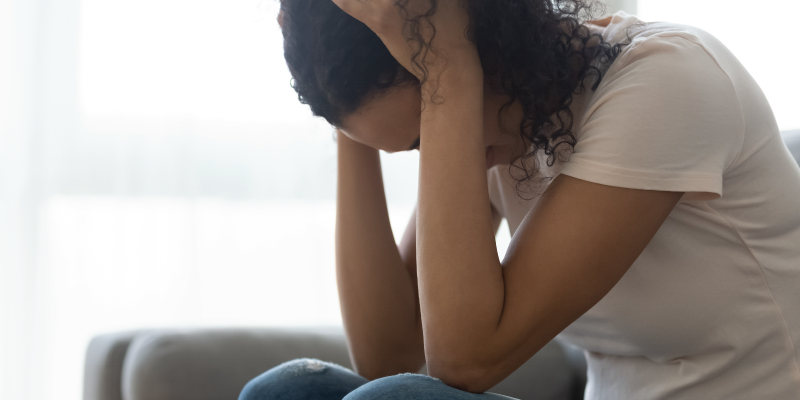Giving birth to a child really shakes up a mama’s life. Often, this upset in life following childbirth can lead to a couple of weeks where a mother feels a bit … down in the dumps. This sensation is often referred to as “the baby blues.” But what happens when it’s much more serious than that? When the feelings don’t subside after a week or two, or they’re all consuming? Postpartum depression is a very serious illness that occurs in about 1 in 7 mothers.
Postpartum depression can occur any time in the first year of your baby’s life, but often begins around the three-week mark. Mothers tend to feel detached, despondent, hopeless and guilty, and they often find it hard to want to take care of their babies. Left untreated, postpartum depression can have some very serious consequences.
While there is no surefire way to ensure that you will never experience postpartum depression, we’ve identified some tips and thoughts on how you can potentially avoid and overcome the depression. However, we are not medical professionals. Please talk to your doctor or healthcare professional if you believe you or someone you love is battling with postpartum depression.
Be proactive during pregnancy.
During your pregnancy, take some time to educate yourself using books, blogs and mommy groups centered around postpartum health. Know the kind of nutrition and exercise your body will need both before and after your baby’s birth. Read up on what to watch for with hormonal imbalances and what you can do to notice them and act immediately.
Be honest with your doctor.
Your doctor will do screenings and have you fill out surveys regarding your current mental state. These screenings and surveys are intended to help you, so make sure you’re telling the truth. If you feel sad or despondent, tell your doctor. Don’t “wait for it to subside” or assume it’s “just a phase.” Let a professional help you immediately.
Create and maintain contact with your support group.
This one is so important. New motherhood is not something you want to take on alone. Whether you rely on a partner, a group of friends or even if nothing else, a mommy group, make sure you have a support community around you to help when things get hard and listen to you when you need to vent.
Get some sun and exercise.
Take walks and get some fresh air and sunshine. Both of these will do wonders for your soul and for easing your mind.
Find something that calms and relaxes you.
Studies have shown that infants bond much better to a relaxed mother. Bonding with your new little one will help your mood and mental state more than you could imagine. So whether it’s meditating, taking a bath or simply taking five minutes in your busy day to breathe slowly and center yourself, make sure you’re doing whatever you can to try and stay relaxed.
Learn to be flexible.
Let’s face it, having a baby is going to mess up your routine and scheduling quite a bit. Try to ease into this and go with the flow. Maybe that cup of coffee and shower don’t happen until 3 p.m. That’s okay! Maybe baby’s nap turns from 9 a.m. to 1 p.m. That’s okay! You will find a new routine with your little one, but allowing yourself to let those old routines go will do wonders in calming you on your new journey.
Try to get as much sleep as you can.
We know, we know, everyone tells you this. And it’s so much easier said than done. But it is SO important for you to do everything you can to get some sleep. Follow the old adage and sleep when baby sleeps, call in backup so you can take a quick 30 minute nap–anything you can do to ensure that you get some sleep throughout this trying time.
Ask for help.
This one is also incredibly important. You will need help and there is no shame in asking for some. Reach out to a parent, friend, neighbor or partner. Chances are, they’ll be overjoyed at the chance to step in and give you some peace of mind.
Know and remind yourself that you have done nothing wrong.
Perhaps most important of all, you are doing your best, and you are not alone. Postpartum depression and baby blues happens to a lot of women out there. You should never feel guilty, nor should you beat yourself up over it.
Hang in there, with the correct help and medical attention, it does get better.
Join the other 1,000,000+ expecting mamas who love Bump Boxes.
